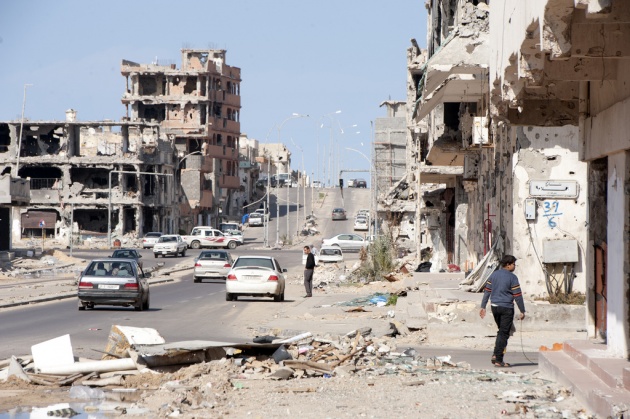Today, the ICJ joined seven other non-governmental organizations calling on States to establish a Commission of Inquiry or similar mechanism for Libya at the 43rd session of the UN Human Rights Council from February to March 2020.
The mechanism should document human rights violations and abuses, identify those responsible for them, preserve evidence for use in future criminal proceedings, and publicly report on the human rights situation in the country.
“Impunity reigns in Libya and, without an overhaul of the criminal justice system, future investigations or prosecutions are unlikely to be effective,” said Said Benarbia, the ICJ’s MENA Programme Director.
“As negotiations for a ceasefire and political solution to the conflict in Libya continue, States cannot keep on ignoring accountability for the egregious human rights violations and abuses committed in the country,” he added.
In July this year, the ICJ released a report – Accountability for Serious Crimes Under International Law in Libya: An Assessment of the Criminal Justice System – which found that the legal framework in Libya does not meet international standards governing the rights to liberty and to a fair trial of detained or accused persons, or the rights of victims to a remedy and reparation.
Crimes against humanity and war crimes, committed by State and non-State actors on a widespread scale in Libya, are not penalized under domestic law at all. The definitions of crimes such as torture, enforced disappearances, extrajudicial killings and rape are also inconsistent with those under international law.
“While the International Criminal Court has jurisdiction over crimes against humanity and war crimes committed in Libya since 2011, it is not a panacea for all crimes perpetrated in the country, nor can it contribute to the development of viable institutional and legislative reforms needed for human rights and the rule of law to take root,” said Kate Vigneswaran, the ICJ’s MENA Programme Senior Legal Adviser.
At the 42nd Session of the Human Rights Council, Kate Gilmore, UN Deputy High Commissioner for Human Rights, and Ghassan Salame, Special Representative of the UN Secretary-General (SRSG) and Head of the UN Support Mission in Libya (UNSMIL), called for the establishment of an international body to investigate violations of international human rights and humanitarian law in Libya.
“States have been relegating accountability in Libya, purportedly in the interests of peace, for far too long, an approach that has continually proven to yield little in the way of a political solution or the cessation of human rights violations and abuses against the many thousands of victims. States should take heed of the SRSG and Deputy High Commissioner’s statements,” said Vigneswaran.
Other signatories to the joint letter are Amnesty International, the Cairo Institute for Human Rights Studies, the International Federation for Human Rights, Human Rights Watch, Lawyers for Justice in Libya, the Libya Platform, and the Women’s International League for Peace and Freedom.
Contact:
Said Benarbia, Director of the ICJ Middle East and North Africa Programme, t: +41-22-979-3817; e: said.benarbia(a)icj.org
Kate Vigneswaran, ICJ Senior Legal Adviser, t: +31624894664, e: kate.vigneswaran@icj.org, twitter: @KateVigneswaran
Libya-Letter to HRC-Advocacy-open letters-2019-ENG (open letter in English, PDF)
Libya-Open letter HRC_News-press release-2019-ARA (press release in Arabic, pdf)
Libya-Letter to HRC-Advocacy-open letters-2019-ARA (open letter in Arabic, PDF)
Photo credit: Image by European Commission DG ECHO

